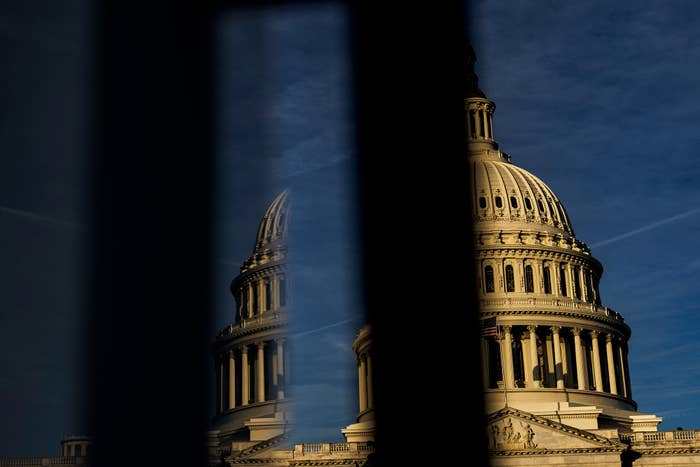
People are really worried about inflation. Exit polls showed that it was the top issue for voters in this week’s midterm elections, particularly those who voted for Republican candidates. According to figures released on Thursday, inflation eased to 7.7% last month, an improvement from September, though still high. Kiplinger staff economist David Payne expects inflation to fall to a little more than 3% by the end of next year. How much elected officials can actually reduce inflation in the near future, however, is another story.
This may seem implausible, considering Congress passed something actually named the Inflation Reduction Act (IRA), which was signed into law in August. But the act focuses on providing climate investments and a 15% corporate minimum tax as well as lowering prescription drug prices rather than immediately targeting the increased costs for housing, fuel, and food — the major components of today’s rising costs. When it comes to inflation, the IRA’s expected impact “is statistically indistinguishable from zero,” according to analyses from the Congressional Budget Office and the Penn Wharton Budget Model, a think tank.
Countries around the world are dealing with heightened inflation — in other words, this is not a problem that is unique to the United States government or its policies. Most countries saw “relatively low levels before the COVID-19 pandemic struck in the first quarter of 2020; flat or falling rates for the rest of that year and into 2021, as many governments sharply curtailed most economic activity; and rising rates starting in mid-to-late 2021, as the world struggled to get back to something approaching normal,” according to Pew Research Center.
If inflation is caused by too much demand (people having too much money) for the supply (a shortage of all the things that have gotten more expensive), the only real solutions are to reduce demand and to increase supply. Much of the responsibility to correct it has fallen so far on the Federal Reserve, which is aggressively tackling the demand side by increasing interest rates. As borrowing money became more expensive, the housing market almost immediately cooled off, but consumer prices overall have yet to stabilize.
“It will be really hard to implement a fast-moving policy now, because policies just take time, often to have an effect.”
Where elected officials and Tuesday’s vote come in is limiting government spending, such as the relief programs that put money into people’s hands during the pandemic (including stimulus checks and student loan forbearance), which will almost certainly not be renewed since restrictions and precautions to control COVID-19 have been weakened or eliminated entirely. Republicans already have criticized Democrats and President Biden’s rescue plan for contributing to rising prices, and after this week’s election, “the President will be hard pressed just to hold the line on current outlays, let alone expand,” said Bill Galston, a governance studies senior fellow at the Brookings Institution.
If the Fed maintains high rates and Congress restricts spending, “I think that over the next year or so, that formula should show results,” Galston said. “And if the economy does go into a recession as a result of the Federal Reserve Board's interest rate hikes, I doubt very much that there's going to be a traditional stimulus plan, such as we saw in 2009.”
While conservative lawmakers are calling for spending cuts to curb inflation, raising questions about an upcoming battle over the debt ceiling, it is not feasible to cut their way through rising prices in the short term. In a November Wall Street Journal story, Penn Wharton Budget Model estimated that “to reduce the inflation rate just 1 percentage point next year through spending cuts alone would require slashing annual discretionary outlays by nearly half, or $750 billion a year. That’s roughly equal to the entire defense budget.”
Morningstar’s vice president of research similarly concluded, “it’s not clear that developed countries can meaningfully slash their inflation rates by tightening their fiscal belts. Doing so might well be a sound policy decision, in terms of promoting a healthier long-term economy. But if so, that should be the stated goal, rather than the unlikely hope of slowing inflation.”
Rather than pursue spending cuts, “The better approach is to get workers back in the workforce with confidence that they will not get sick” in order to alleviate supply chain and labor issues that are causing prices to rise, said Kent Smetters, director of the Budget Model and professor of business economics and public policy at Wharton.
Other measures to ease supply restrictions, such as streamlining oil and gas drilling permits and reducing barriers to international trade, would also help reduce price pressure, Smetters added. Along these lines, the Biden administration has tapped the Strategic Petroleum Reserve to reduce fuel prices despite the president’s promise to reduce the country’s reliance on fossil fuels.
Kassandra Martinchek, a research associate at the Urban Institute, said, “It will be really hard to implement a fast-moving policy now, because policies just take time, often to have an effect.” Congress passed legislation to subsidize the semiconductor industry and help relieve the shortage of computer chips impacting manufacturers, though not in the short term. Similarly, incentives in the Inflation Reduction Act will reduce the price of electric vehicles and reduce the cost of electricity, and voters around the country approved measures to build more affordable housing, “but those will take several years to actually get off the ground,” said Yonah Freemark, senior research associate at the Urban Institute.
Perhaps Congress’s biggest role would be to build in better social safety nets in the long term so that consumers are better equipped to cope with large economic shocks like high inflation. “It's more about having policies that address the root causes, and help folks build financial resilience,” Martinchek said, “so that they can meet those future economic shocks without experiencing severe hardship.” ●
